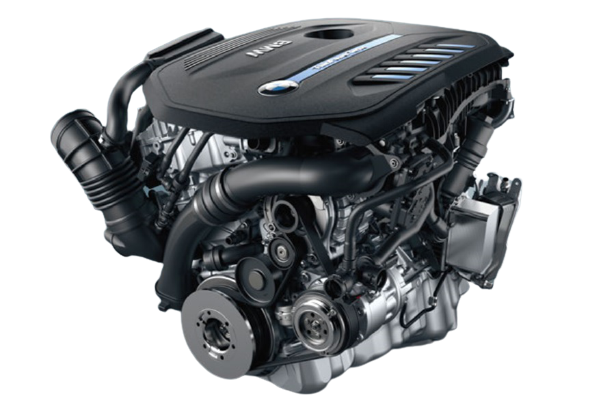Why the BMW Engine Is Thought About One of the Best in Luxury Vehicles
Introducing the Intricacies of Next-Generation Power Units: a Deep Study Advanced Engine Layouts and Technologies
As we stand on the precipice of a new period in transportation, the intricacies of next-generation engine layouts beckon us to discover the advanced modern technologies and developments that assure to redefine the driving experience. Digging much deeper into the worlds of emission control, intelligent engine monitoring systems, and the horizon of power device development, we locate ourselves on the cusp of a makeover that promises to improve the landscape of mobility as we understand it.
Advancement of Engine Materials

The shift in the direction of progressed engine products has actually also enabled engineers to create engines with greater power results while keeping gas performance standards. The use of lightweight materials reduces the overall weight of the engine, leading to improved fuel economy and lower emissions. Additionally, developments in materials technology have enabled for much better thermal management within engines, resulting in enhanced reliability and longevity.
Turbocharging and Supercharging Technologies
Exactly How do Turbocharging and Supercharging Technologies transform engine performance and performance in contemporary cars? Supercharging and turbocharging are modern technologies that dramatically improve engine performance by increasing the amount of air consumption into the combustion chamber. Turbocharging achieves this by using a wind turbine driven by exhaust gases to pressurize the consumption air, while turbo charging uses a belt- or chain-driven compressor to achieve the exact same impact.
These technologies make it possible for smaller, extra fuel-efficient engines to create power equivalent to bigger ones, called downsizing. Forcibly more air right into the cylinders, supercharging and turbocharging enhance burning effectiveness, causing enhanced horse power and torque output without a considerable increase in engine size. This brings about better velocity, lugging capability, and total driving performance.
Additionally, supercharging and turbocharging add to improved fuel performance by allowing the use of smaller sized engines that eat less fuel under typical driving problems - bmw engine. This combination of improved efficiency and performance has made turbocharging and supercharging important parts of many contemporary engine layouts
Emission Control and Environmental Impact
With boosting international concerns relating to air top quality and environmental sustainability, the application of exhaust control technologies in cars plays an essential function in decreasing harmful contaminants launched into the ambience. Modern cars are furnished with innovative discharge control systems that aid minimize the environmental effect of automotive operations. Catalytic converters, as an example, are created to transform toxic gases such as carbon monoxide, nitrogen oxides, and hydrocarbons into much less hazardous compounds like co2 and water vapor.
Additionally, improvements in engine modern technology, such as the integration of exhaust gas recirculation systems and selective catalytic reduction, have substantially added to decreasing emissions. These modern technologies operate in tandem to enhance burning effectiveness and lessen the release of hazardous pollutants into the air. Furthermore, the development of crossbreed and electrical automobiles represents a vital step towards lowering the total environmental footprint of the transport market.
Intelligent Engine Management Systems

In addition, these systems allow cars to meet stringent exhausts criteria without jeopardizing performance, supplying a more eco-friendly driving experience. The integration of expert system and artificial intelligence abilities in engine management systems proceeds to push the boundaries of what is feasible, resulting in more enhancements in efficiency, integrity, and total vehicle efficiency. bmw engine. As automobile technology advances, intelligent engine monitoring systems will certainly play an important role in forming the future of transportation in the direction of an extra efficient and sustainable instructions
Future Trends in Power System Development
As intelligent engine management systems pave the way for enhanced control and optimization in modern vehicles, future trends in power unit development are poised to redefine the landscape of automotive propulsion technologies. These alternative power sources offer boosted performance and efficiency while lining up with strict environmental policies.
Another substantial fad is the combination of sophisticated materials and making strategies. Light-weight materials such as carbon fiber and aluminum are being made use of to minimize overall vehicle weight, boosting fuel efficiency and efficiency. Furthermore, improvements in 3D printing and additive manufacturing are enabling the manufacturing of complicated engine components with greater accuracy and toughness.
In addition, fabricated knowledge and artificial intelligence are playing a critical function in optimizing power device efficiency. These modern technologies permit real-time surveillance and adaptive control, leading to more reliable and trustworthy power shipment. On the whole, future patterns in power device advancement are tailored towards efficiency, efficiency, and sustainability, driving the auto industry in the direction of a new age of propulsion modern technologies.

Final Thought
To conclude, the innovations in engine materials, turbocharging, exhaust control, and intelligent monitoring systems have led the way for next-generation power units. These advancements have not only better performance and effectiveness yet likewise reduced ecological impact. As innovation continues to progress, future trends in power system development are likely to concentrate on further boosting sustainability and enhancing power result. The elaborate layouts and developments in modern-day engines showcase the continuous advancement of vehicle modern technology.
Checking out the dynamic advancements in engine materials has been essential in boosting the efficiency and efficiency of contemporary engines. Over the years, the advancement of engine products has played a critical role in pushing the boundaries of what engines can accomplish.The change in the direction of progressed engine materials has additionally made it possible for designers to design engines with greater power outputs while keeping fuel effectiveness requirements.The application of intelligent engine management systems in contemporary automobiles has actually changed the means engines are regulated and enhanced for performance and efficiency. By you could try these out collecting information in real-time and Full Report assessing it with innovative formulas, intelligent engine management systems can adapt to driving designs, ecological elements, and engine health to make best use of power output while minimizing gas intake and discharges.